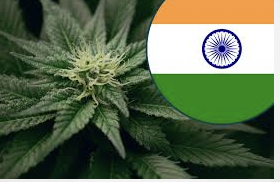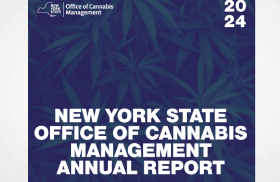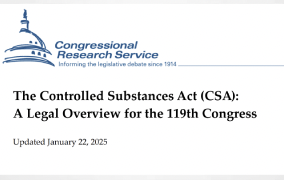They have just published this article, as far as I’m aware the first of its kind that isn’t swamped in academia or Indian legalese which can at the best of time be impossible to deipher so this is well worth a reader for a great overview
Introduction
Read full article at
India, the country that gave the world an understanding of cannabis as medicine, has been working behind the scenes to develop rules and legislation for the approval of cannabis-based medicines in line with global standards. According to reports, in May 2023, the CDSCO (Central Drugs Standard Control Organization, equivalent to the US FDA), paved the way for synthetic CBD to be available in the Indian markets for Lennox Gastaut Syndrome, Dravet Syndrome, and Tuberous Sclerosis Syndrome in children aged 1 year and above. The CDSCO has given permission to Zenara Pharma, a subsidiary of Biophore India Pharmaceuticals, to manufacture and market Cannabidiol Oral Solution 100mg/ml for use in neurological disorders.
Prior to this, in the year 2018, a tripartite memorandum of understanding was signed between three leading government research and development organizations named ICMR (Indian Council of Medical Research), DBT (Department of Biotechnology) and CSIR (Council of Scientific and Industrial Research) for the development of a cannabis-based pharmaceutical drug with a 1:1 ratio of THC:CBD for pain.
Legal Overview of Cannabis and Hemp in India
India has a very similar situation to the US, where cannabis remains a Schedule I substance of the Narcotic Drugs Schedule by the federal government, but states regulate it for industrial, medical and recreational use. In India, cannabis was banned and classified as a Schedule 1 substance after the enactment of the Narcotic Drugs and Psychotropic Substances Act of 1985.
 Prior to this, cannabis was cultivated in most of India for Ganja (the flowering tops of the cannabis plant), Bhang, and for use in the fiber and seed industries. In the late 1800s, the British government in India began regulating the sale of cannabis. There was a well-defined set of rules and regulations for the cultivation, storage, transportation, and sale of cannabis for medicinal and recreational purposes.
Prior to this, cannabis was cultivated in most of India for Ganja (the flowering tops of the cannabis plant), Bhang, and for use in the fiber and seed industries. In the late 1800s, the British government in India began regulating the sale of cannabis. There was a well-defined set of rules and regulations for the cultivation, storage, transportation, and sale of cannabis for medicinal and recreational purposes.
After 1985, under pressure from the Nixon administration, India adopted a much stricter approach towards cannabis, but always allowed its traditional medical uses in Ayurveda, Siddha, Unani and Homeopathy. Under Section 8 read with Section 10 of the NDPS Act, 1985, state governments were given the right to regulate laws relating to the cultivation, processing, storage and inter-state import and export of cannabis.
In 2016, Uttarakhand became the first state in India to formulate laws regarding the commercial cultivation of industrial hemp for fiber and seeds and the cultivation of cannabis for medical and scientific uses. So far, more than 30 industrial hemp licenses have been granted in the state. It was only after 2018 that Indian regulators began to pay more attention to the pharmaceutical applications of the cannabis plant.
Current Scenario in Indian Medical Cannabis and CBD Market
Prior to the approval of Zenara Pharma’s CBD, all products containing cannabis leaf extract available in the Indian market were either patented or classical formulations of Ayurvedic origin. According to Ayurvedic regulations, cannabis is considered an Upavisha or Schedule 2 Toxin of the Narcotic Schedule and must be purified as per Ayurvedic principles and used in combination with other herbs to counteract its psychotropic propensity. Furthermore, according to classical Ayurvedic books, the whole plant extract is used with all the cannabinoids, terpenes and flavonoids. Only CBD or THC are not mentioned in any of these classical Ayurvedic texts.
The raw material used to manufacture these formulations comes from plants that grow in the wild (as commercial cultivation of cannabis is not permitted) and is supplied to companies licensed by the State Government. And due to the geoclimatic conditions, cannabis plants growing in the wild in India have very low CBD compared to plants grown in controlled environment grow rooms.
Implications of synthetic CBD
Following the approval of synthetic CBD in India, this year the Ministry of AYUSH (Ayurveda, Yoga, Unani, Siddha and Homeopathy) made clinical validation of all patented formulations containing Cannabis and Papaver Somniferum a must – any company intending to manufacture a patented Ayurvedic formulation must submit pre- and post-clinical study data to the Ministry of AYUSH to obtain manufacturing and sale approval.
Although these are synthetic cannabinoids, their availability in Indian pharmacies on prescription is a huge win for patients who rely heavily on Ayurvedic formulations of cannabis leaf extracts that contain some percentage of THC.
This represents a significant milestone in the country’s medicinal cannabis sector, which until now had been restricted to Ayurvedic formulations based on cannabis leaves. This development has paved the way for pharmaceutical companies to introduce CBD-based therapies, especially for neurological disorders.


















